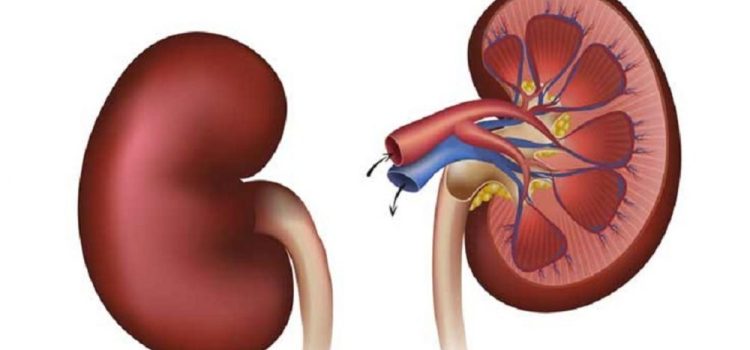
Introduction
Your kidneys do much more than filter waste from your blood. These two bean-shaped organs also balance fluids, regulate blood pressure, and release vital hormones. Yet their full power has remained hidden—until recent scientific breakthroughs shone a light on their many secrets. In this article, we’ll uncover how new studies are changing our understanding of kidney function and renal health. You’ll learn about advances in kidney regeneration, improved treatments for kidney disease, and the discovery of hormones that impact whole-body wellness. By the end, you’ll see why caring for your kidneys is key to overall health.
The Vital Roles of Your Kidneys
The kidneys perform several critical tasks every day:
- Filtering waste and extra fluids: Each minute, your kidneys filter about a quarter of your blood, removing toxins and balancing water levels.
- Regulating blood pressure: They release the enzyme renin, which helps control blood vessel tightening and fluid balance.
- Balancing minerals: Kidneys keep levels of sodium, potassium, and calcium in check, ensuring nerves and muscles work properly.
- Producing hormones: They make erythropoietin, which signals bone marrow to produce red blood cells, and activate vitamin D for healthy bones.
When kidneys falter, waste builds up, and these systems can go awry—leading to high blood pressure, anemia, and weak bones.
Breakthroughs in Kidney Regeneration
One of the most exciting areas in kidney research is regeneration. Scientists are exploring how to grow new kidney tissue in the lab:
- Stem cell therapy: Researchers have turned adult stem cells into kidney-like structures called organoids. These mini-kidneys show basic filtering functions in tests.
- 3D bioprinting: Using special bio-inks, engineers print layers of kidney cells that mimic real tissue architecture. Early trials are focusing on small patches to repair damaged areas.
- Gene editing: CRISPR technology can correct genetic defects that cause inherited kidney diseases by editing faulty DNA in patient-derived cells.
These techniques could one day reduce the need for transplants and long-term dialysis.
Advances in Dialysis and Transplantation
For people with kidney failure, dialysis and transplants save lives. Recent improvements make these treatments safer and more effective:
- Wearable dialysis devices: Compact machines allow patients to move freely during treatment. Early prototypes have shown promise in animal studies and small human trials.
- Bioengineered kidneys: By seeding donor kidney scaffolds with a patient’s own cells, scientists hope to create personalized organs that won’t be rejected.
- Improved immunosuppression: New drugs target specific immune pathways, reducing the side effects of preventing organ rejection.
Together, these advances aim to improve quality of life and expand access to life-saving therapies.
Uncovering Hormonal Secrets
Kidneys are key hormone factories, but many of their products remained unknown until recently:
- Klotho protein: Scientists discovered Klotho acts like an anti-aging hormone. Higher Klotho levels support healthy blood vessels and protect against kidney damage.
- Fibroblast growth factor 23 (FGF-23): This hormone helps control phosphate levels. Abnormal FGF-23 can lead to bone disease in chronic kidney conditions.
- Novel peptides: Ongoing studies are finding small protein fragments that influence appetite, inflammation, and metabolism.
By mapping these hormonal networks, researchers aim to develop drugs that boost natural kidney-derived hormones for better health.
Understanding the Kidneys:
The kidneys, shaped like beans and roughly the size of fists, reside on either side of the spine, nestled in the back of the abdomen. Their primary role is to filter blood, removing waste products and excess fluids to produce urine. But their responsibilities extend beyond this.
- Filtration Process: Inside the kidneys are millions of tiny units called nephrons, each functioning as a filtration system. Blood flows through these nephrons, where waste is removed, and essential substances like electrolytes and water are reabsorbed.
- Fluid Balance: Kidneys regulate the body’s fluid balance, ensuring hydration and preventing dehydration or fluid overload.
- Blood Pressure Regulation: They also help regulate blood pressure by controlling the volume of blood and releasing hormones that influence blood pressure and red blood cell production.
Common Kidney Disorders:
Kidneys can face various challenges, leading to disorders that affect their functionality:
- Chronic Kidney Disease (CKD): This condition gradually impairs kidney function over time, often due to conditions like diabetes or high blood pressure.
- Kidney Stones: Crystallized minerals can accumulate, forming stones within the kidneys, causing severe pain and potential blockages.
- Urinary Tract Infections (UTIs): Bacterial infections can affect the kidneys, bladder, or urethra, leading to discomfort and potential complications.
Recent Breakthroughs in Kidney Science:
- Organoids and Regeneration: Scientists have made strides in growing kidney organoids, miniature kidney structures, in laboratories. These models mimic the kidney’s functions, aiding in research and potentially offering avenues for organ regeneration.
- Artificial Intelligence (AI) in Diagnostics: AI algorithms are being developed to analyze medical images and aid in the early detection of kidney diseases, potentially improving diagnostic accuracy and treatment outcomes.
- Precision Medicine: Tailoring treatments based on an individual’s genetic makeup and specific disease characteristics is an emerging frontier in kidney care. This approach aims for more effective and personalized therapies.
Lifestyle and Kidney Health:
Maintaining kidney health involves adopting healthy habits:
- Hydration: Staying adequately hydrated helps the kidneys flush out waste and toxins.
- Balanced Diet: A diet low in sodium, processed foods, and excessive sugars can benefit kidney health.
- Regular Exercise: Physical activity aids overall health, including kidney function, by improving circulation and reducing the risk of conditions like obesity and high blood pressure.
Conclusion:
Unveiling the complexities of kidney science reveals their vital role in maintaining our well-being. From their intricate filtration system to ongoing scientific breakthroughs, understanding and caring for our kidneys is paramount. By embracing healthy lifestyles and supporting innovative research, we pave the way for a healthier future, both for our kidneys and our overall health.










